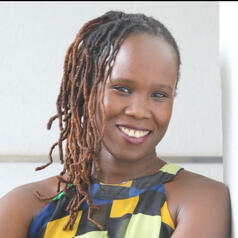|
Kenya’s Mau Mau emergency of the 1950s was marked by brutal violence. Detention camps, forced relocations and torture were hallmarks of colonial rule. But there’s another side to this period that’s often less discussed – the role churches and NGOs played. The Christian Council of Kenya, founded in 1943 and led mostly by white European missionaries, was invited into detention camps to encourage detainees to renounce the independence struggle and embrace Christianity. However, instead of overseeing mass conversions, the council became entangled in – and a bystander to – the colonial government’s policy of violence, as Poppy Cullen’s research shows.
France has a reputation for having an open-minded approach to sex; brothels were made legal in the early 1800s. But a recent book challenges this belief. In Desiring Whiteness, historian Caroline Séquin tells the story of how the country has policed its sex workers and how, in colonial Senegal, this was done in pursuit of white supremacy. She told us about her award-winning study.
|

|
Kagure Gacheche
Commissioning Editor, East Africa
|
|

Poppy Cullen, Loughborough University
The Christian Council of Kenya got involved in a violent colonial effort to rehabilitate independence fighters. It saw this as an opportunity to evangelise.
|

Caroline Séquin, Lafayette College
French authorities allowed sex work because they believed brothels could help prevent interracial relationships from developing.
|
Education
|

Vhothusa Edward Matahela, University of South Africa; Azwihangwisi Helen Mavhandu-Mudzusi, University of South Africa
Teachers need help to talk to learners about sexual health topics.
|
Politics
|

Satang Nabaneh, University of Dayton
The Gambia’s latest attempt at passing a new constitution suffered a setback due to controversial clauses, including retroactive presidential term limits.
| |

Henning Melber, University of Pretoria
There were several times in Swapo’s exile history when internal critics were silenced.
|

Tinuade Adekunbi Ojo, University of Johannesburg
The G20 presidency could champion affordable internet for women, innovation hubs for women entrepreneurs and subsidies for tech companies to hire more women.
| |

Kenny Chiwarawara, University of Johannesburg
A more responsive government would avoid a turn to militant protests to air grievances.
|
|
|
Climate
|

Olivia Kunguma, University of the Free State; Johannes Belle, University of the Free State
South Africa’s G20 presidency is working on getting communities ready to survive disasters.
|
|
|
-
Roula Inglesi-Lotz, University of Pretoria; Jessika Bohlmann
South Africa’s new climate targets cut emissions only modestly by 2035; a cautious path risks missing green investment, even though deeper cuts are within reach.
-
Nomtha Hadi, Nelson Mandela University
Millions of jobs could be created from sustainable economic ocean development.
|
|
Business + Economy
|

Girmachew Adugna, Addis Ababa University
Legal ways to make a decent life inside and outside Ethiopia should be increased.
|
|
|
-
Astrid R.N. Haas, University of Cape Town
Johannesburg in South Africa and São Paulo in Brazil offer useful insights into how cities in the global south should be managed.
-
Danny Bradlow, University of Pretoria
The International Court of Justice case on climate change has implications for countries negotiating debt deals.
|
|
Science + Technology
|

Hanlie Smuts, University of Pretoria
Stored data contributes to greenhouse gas emissions by needing power for servers and cooling systems.
|
|
|
-
Pierre Rochette, Aix-Marseille Université (AMU)
Lake Iro was recently photographed from space as it looked like a sunglint, but there is more to the lake that makes it unique.
-
Jack Swab, University of Tennessee; Derek H. Alderman, University of Tennessee
Maps help shape how we make sense of the world.
|
|
Arts, Culture + Society
|

John Aerni-Flessner, Michigan State University
Few Basotho remain who witnessed colonial life. Even fewer went on to build institutions that shaped independent governance and education.
|
|
|
-
Tinashe Mushakavanhu, Harvard University
English readers can now encounter African novels as they were first imagined, in the rhythms of their own languages.
|
|
Environment + Energy
|

Anusha Rajkaran, University of the Western Cape; Conrad Sparks, Cape Peninsula University of Technology
South Africa plans to ban plastic microbead particles that wash into the ocean and end up in the fish we consume. The ban may take two years to come into effect.
|
|
|
-
Nicholas B. Pattinson, University of Cape Town; Mark Graham, University of KwaZulu-Natal
At least 20 million litres of sewage is leaking from pipes into the environment in just one South African city. The problem could cause ecological collapse.
|
|
| |
|
|
2 September 2025
•
Johannesburg
|

|
5 September 2025
•
Cape Town
|

|
12 - 14 September 2025
•
Johannesburg
|

|
27 September - 3 October 2025
•
Cape Town
|

|
|
|
|
| |
| |
| |
Would you like to republish any of these articles?
|
|
It’s free to republish, here are the guidelines.
Contact us on africa-republish@theconversation.com in case you need assistance.
|
| |
| |
| |
| |
|
|